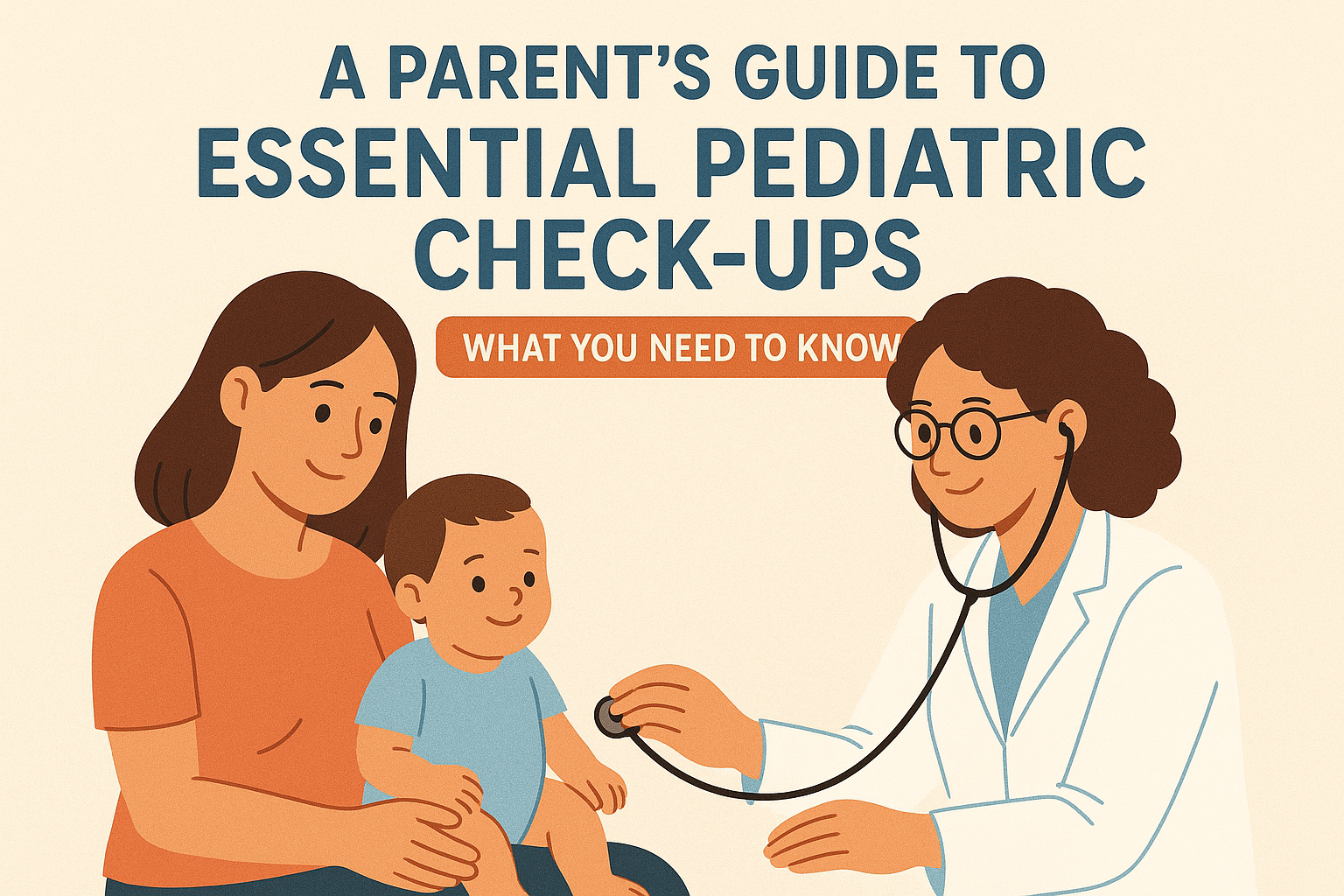A Parent’s Guide to Essential Pediatric Check-Ups: What You Need to Know
- Home
- A Parent’s Guide to Essential Pediatric Check-Ups: What You Need to Know
Free Treatment Under Ayushman Bharat Scheme

Ensuring your child’s health and well-being involves more than just addressing issues as they arise; it’s about proactive care and prevention. Regular pediatric check-ups play a crucial role in monitoring your child’s growth and development, catching potential health issues early, and providing guidance for a healthy lifestyle. If you’re wondering what to expect during these visits and why they’re so important, this blog will provide all the answers.
Regular pediatric check-ups are essential for several reasons:
Pediatricians track your child’s growth metrics, such as height, weight, and head circumference, to ensure they are developing at a healthy rate. They also assess developmental milestones, such as motor skills and cognitive abilities, to ensure your child is reaching appropriate stages for their age.
Preventive care is a core component of pediatric check-ups. This includes administering vaccinations, screening for potential health issues, and providing advice on nutrition, exercise, and safety. Preventive care helps protect your child from illnesses and conditions that could impact their long-term health.
Regular visits allow pediatricians to identify health problems early, often before symptoms become noticeable. Early detection can lead to more effective treatment and better outcomes. Conditions such as vision or hearing problems, developmental delays, and chronic illnesses can be managed more effectively when caught early.
Regular check-ups help build a strong relationship between your family and your child’s pediatrician. This trust is invaluable when addressing health concerns and making informed decisions about your child’s care.
Here’s a general overview of what you can expect during your child’s pediatric check-up:
The physical examination typically includes:
Depending on your child’s age and health history, the pediatrician may recommend various screenings or tests, such as:
The pediatrician will provide guidance on various aspects of your child’s health, including:
Pediatric check-ups are typically scheduled at specific intervals, such as:
If your child has a chronic condition or specific health concerns, your pediatrician may recommend more frequent visits.
Regular pediatric check-ups are a cornerstone of maintaining your child’s health and well-being. They provide an opportunity to monitor growth, administer preventive care, detect potential health issues early, and build a supportive relationship with your child’s healthcare provider. By staying on top of these appointments and following your pediatrician’s recommendations, you’re taking a proactive approach to ensuring your child’s health and setting them up for a bright and healthy future.